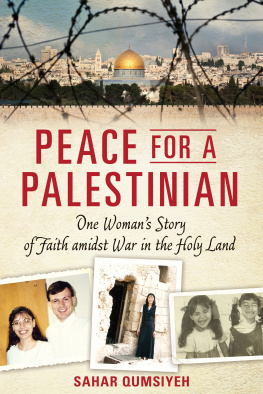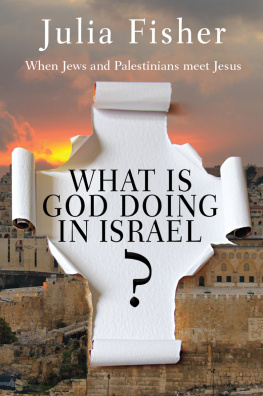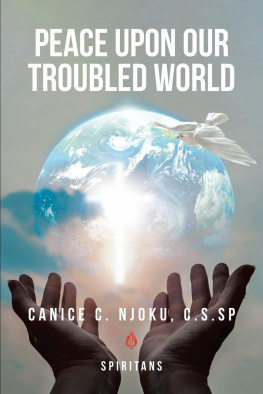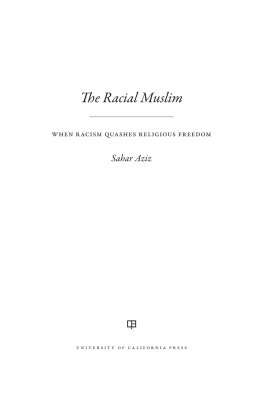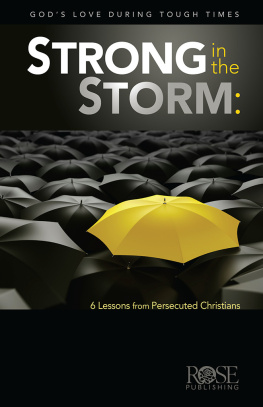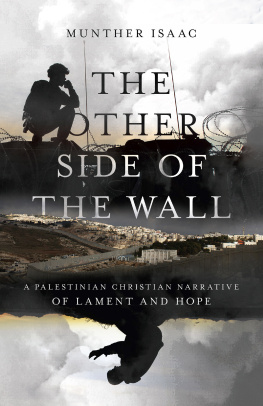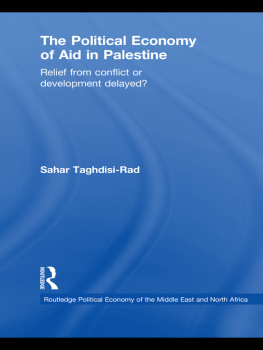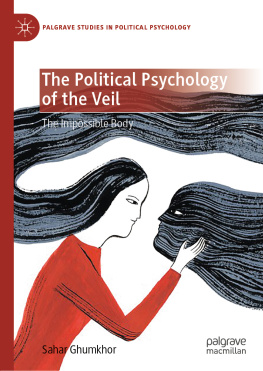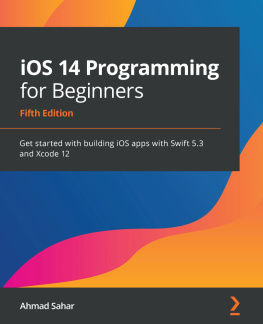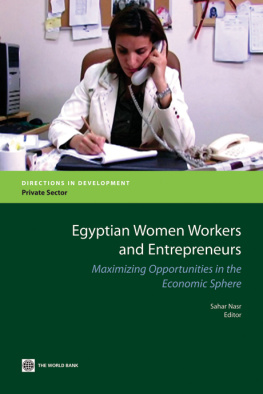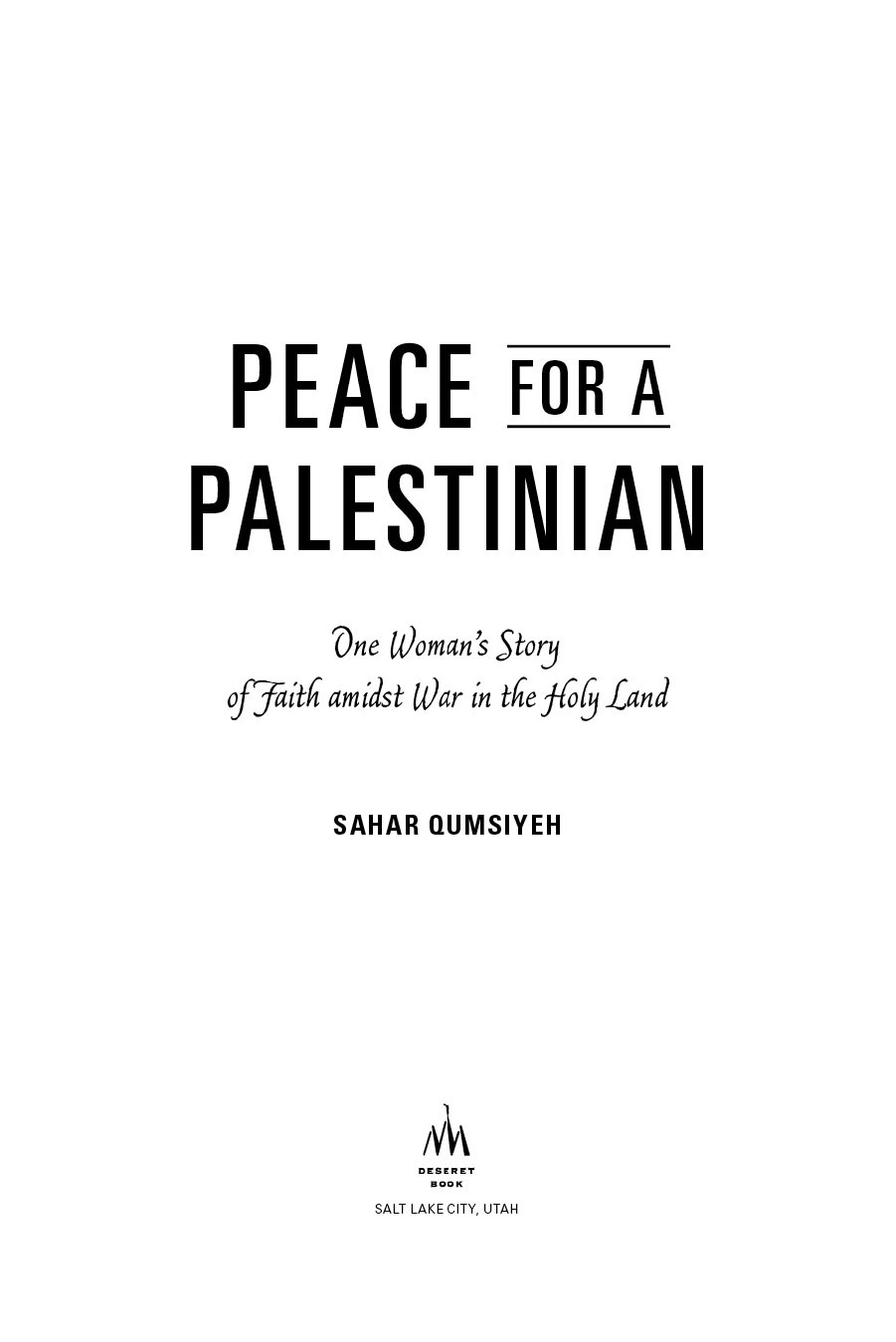All images courtesy the author, except as noted otherwise.
2018 Sahar Qumsiyeh
All rights reserved. No part of this book may be reproduced in any form or by any means without permission in writing from the publisher, Deseret Book Company, at permissions@deseretbook.com or P. O. Box 30178, Salt Lake City, Utah 84130. This work is not an official publication of The Church of Jesus Christ of Latter-day Saints. The views expressed herein are the responsibility of the author and do not necessarily represent the position of the Church or of Deseret Book Company.
Deseret Book is a registered trademark of Deseret Book Company.
Visit us at DeseretBook.com
Library of Congress Cataloging-in-Publication Data
Names: Qumsiyeh, Sahar B., author.
Title: Peace for a Palestinian : one womans story of faith amidst war in the holy land / Sahar B. Qumsiyeh.
Description: Salt Lake City, Utah : Deseret Book, 2017. | Includes bibliographical references and index.
Identifiers: LCCN 2017040436 | ISBN 9781629723952 (paperbound : alk. paper)
Subjects: LCSH: Qumsiyeh, Sahar B. | Mormon convertsPersonal narratives. | Palestinian ArabsBiography.
Classification: LCC BX8695.Q86 A3 2017 | DDC 289.3092 [B] dc23
LC record available at https://lccn.loc.gov/2017040436
Printed in the United States of America
Lake Book Manufacturing, Inc., Melrose Park, IL
10 9 8 7 6 5 4 3 2 1
To all the amazing people along my path who
have helped me become the person I am.
Foreword

Every day we can find evidence that hatred, violence, and vengeance abound in a world that appears to be forgetting God. In particular, the Middle East has become almost synonymous with retaliation, bloodshed, and distrust. In our prayers for peace in the ugly, complicated, and decades-old conflict between the Israelis and the Palestinians, we may naively conclude that God is on one side of the conflict and therefore the other side is an enemy of God. Such simplistic observations cease once we become acquainted with individuals who self-identify as Palestinian.
Those of us who know and love the Bible may develop a natural bias against Palestinians by equating the Israel of the Bible with the modern State of Israel. Knowing about the covenant that the Lord made with the twelve tribes of Israel in antiquity, including a land inheritance, we may unwittingly assume that this modern nation-state retains the same God-given right to control that land, no matter the cost. The scriptures teach us otherwise. The people of God are those whom He justifies. They live and embrace the gospel of Abraham. They love God with all their heart and might and their neighbors as themselves. As the Apostle Paul astutely observed, They are not all Israel, which are of Israel (Rom. 9:6), and as Nephi taught, The Lord esteemeth all flesh in one; he that is righteous is favored of God (1 Ne. 17:35).
In a landmark discourse to BYU students back in 1979, President Howard W. Hunter, then a member of the Quorum of Twelve Apostles, applied the Book of Mormon prophet Nephis teachings to warn us against categorically discounting an entire nation, people, or race. He taught, All men are invited to come unto [Christ] and all are alike unto him. Race makes no difference; color makes no difference; nationality makes no difference.... No nation or people or individual could expect to be favored above another.... We need to discover the supreme truth that indeed our Father is no respecter of persons. Sometimes we unduly offend brothers and sisters of other nations by assigning exclusiveness to one nationality of people over another.... [W]ords from the lips of the Master know no national boundaries; they are not limited to any race or culture. (All Are Alike Unto God, 1979 BYU Speeches of the Year, 3235). President Hunters direct and merciful message was a reminder that we mourn with those who mourn, feel sympathy with those who suffer, and avoid unconditionally taking sides in international conflicts. We may count Muslims, Jews, Christians, and those without affiliation with any religion among our friends.
The backdrop of this book is the PalestinianIsraeli conflict, but it is not a book about politics or government. It is a book about one Palestinian womans remarkable experiences and choices to find hope and peace, kindled and fed by her faith in Jesus Christ, all while the political turmoil has continued to rage. Healing and peace are possible only through the perfect love of the Redeemer of the world.
Sahar Qumsiyeh is a Palestinian woman who was born in Jerusalem and grew up in Beit Sahour, close to Bethlehem. Brigham Young University offers a few scholarships each year to Palestinians. Without knowing anything about BYU, the state of Utah, or the LDS Church, Sahar accepted one of these scholarships to pursue a masters degree in statistics. While enrolled at BYU, Sahar joined the Church despite strong disapproval from her family and friends. Her story is, therefore, an invitation to better attune ourselves with a staggering percentage of people in the world who live in grave danger, deprivation, and hopelessness every day. By coming to know Sahar through her story, we may identify more readily and compassionately with those from any land whose lives are perpetually under siege.
I first met Sahar in the summer of 1999, when I became her visiting teacher in the Jerusalem Branch of the Church. I was in the Holy Land that year as a faculty member at BYUs Jerusalem Center for Near Eastern Studies. I had recently completed my doctoral dissertation that considered modern Palestinian families in the West Bank and Gaza Strip. My masters degree focused on the history, culture, and literature of the same land, albeit in antiquity. Together, these two degrees immersed me in a world of complex history and relationships in a land with a footprint about the size of the state of New Jersey.
As her visiting teachers, my companion and I typically visited with Sahar on the Sabbath at the BYU Jerusalem Center right after our worship services. I have not forgotten the day when Sahar invited us to come to her home in Beit Sahour for dinner. With our US passports, my companion and I easily passed through the checkpoint to drive to her home where she lived with her parents.
Her mother and older sisters joined Sahar to greet us. They prepared a banquet and were overwhelmingly hospitable to us as strangers in their home. I was curious to know what life was like for Sahars mother when she was growing up in Palestine and how life had changed for her since 1948, when the State of Israel was created on land that had for centuries been owned and farmed by Palestinians. I asked several questions and they all replied graciously. During that visit, I noted the respect that this matriarch received from her daughters. I also learned that each of them, mother included, was highly educated and each placed a high value on education for her childrensons and daughters. I began to receive a glimpse of Sahars rich ancestry, a family who for generations had inhabited the land amid numerous invasions and rule under various foreign despots, all the while retaining their identity as Palestinian Christians.
When I asked how they felt about Sahars conversion to the LDS Church, Sahars mother told me it was hard to see her daughter affiliate with an organization that is anti-Palestinian and pro-Israeli. My heart broke. I told her about our doctrine that all are alike unto God and that I had a deep love and respect for many Palestinians and Israelis that I knew personally through my research and teaching there. I told her that the God I worship would not condone the atrocities that her people had suffered. My visiting teaching companion verbalized something similar about her beliefs and perceptions, but I could tell that this strong and articulate matriarch, who had seen so much tragedy over the years, did not believe us. We belonged to an American church in her mind, and America was pro-Israel, so we must be, too.

